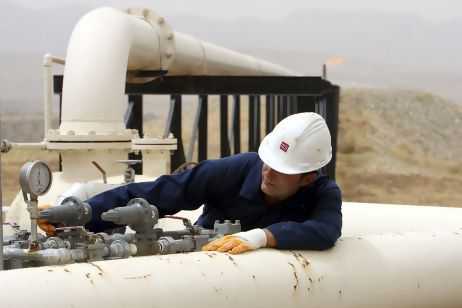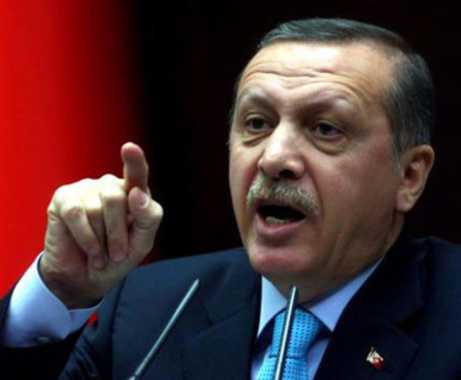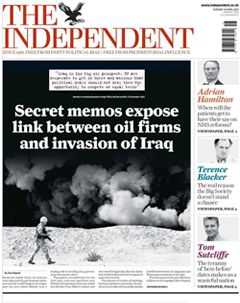Aymenn Jawad Al-Tamimi
The American Spectator
Though the pace of growth of the Turkish economy has slowed significantly, one of Ankara’s priorities over the coming years is to meet the country’s growing energy demands. The clearest solution is to diversify suppliers of oil and gas, with the autonomous Iraqi Kurdistan (KRG) area being one potential source for such fuels.
Had you asked me a few months ago about the Turkish policy on acquiring energy resources from the KRG via an independent pipeline project and against the will of the Iraqi central government, I would have said that Ankara was still ambiguous on the matter, but now it seems clear that the Turkish government under Prime Minister Erdoğan intends to move forward with such plans.
The first sign of an advance in the framework of an informal commercial deal between the KRG and Ankara on this issue was a report by Ben Van Heuvelen for the Iraq Oil Report. Relying on the testimony of “multiple senior Turkish officials,” Heuvelen reports that the terms would include “stakes in at least half a dozen exploration for the direct pipeline export of oil and gas from the KRG.”
Multiple other sources can be used to confirm Heuvelen’s report. Following the visit of KRG premier Nechirvan Barzani in Ankara to meet with Erdoğan on March 26 where the two leaders apparently agreed to begin implementing the energy cooperation plan, the Turkish opposition party CHP attempted to launch a no-confidence motion in parliament against Foreign Minister Ahmet Davutoğlu on account of the energy deal with the KRG. The no-confidence motion failed.
CHP member Osman Korutürk claimed that a pipeline agreement in particular contradicted Davutoğlu’s declared principle of “zero problems” with neighboring countries, noting the objections of Baghdad and Washington to the development of energy ties between the KRG and Turkey without the Iraqi government’s consent.
The Turkish premier’s response to this initiative by the CHP, which is similarly opposed to Ankara’s firm anti-Assad stance vis-à-vis Syria, was to indicate that the issue should be taken up with Energy Minister Taner Yildiz, who proceeded in a speech to acknowledge the idea of maintaining Iraq’s unity as one of the top priorities of Turkish foreign policy, while arguing that the KRG had a constitutional right to develop energy ties with Ankara and is entitled to 17% of Iraq’s budget as per a 2006 agreement between Arbil and Baghdad.
In a subsequent interview with CNN Turk, Erdoğan invoked many of the same points as Yildiz in arguing that Turkey had the right to make energy agreements with the KRG, adding that under Prime Minister Nouri al-Maliki, there is no real unity in Iraq anyway.
The point about the KRG’s budget share of 17% — invoked by Erdoğan and Yildiz — is key to Turkey’s official justification for moving forward with developing energy ties with the KRG unilaterally while also claiming to uphold Iraq’s unity. Ankara’s reasoning appears to be as follows: through developing energy ties, KRG will boost its oil production and therefore in terms of Iraq’s overall revenues, the KRG will be contributing 17% and thus match its share of the budget.
At present, the budget share to which the KRG is entitled is well above the autonomous region’s oil output as a proportion of Iraq’s revenues, the overwhelming majority of which comes from the oil industry. Baghdad’s complaint — as reflected in the words of Abdullah al-Amir (the chief advisor to Iraq’s deputy minister for energy affairs) — is that allegedly, only a third of KRG oil revenues reach the central government.
This complaint is not necessarily divorced from reality. In truth, the Turkish government’s official justification for implementing an energy agreement with the KRG while claiming to uphold Iraq’s unity is specious.
Notice that in the interview with CNN Turk (as I have pointed out above, but was omitted in the English reports), Erdoğan said that there is no real unity in Iraq anyway. At the same time, it should be emphasized that Ankara still does not support actual Kurdish independence.
Rather, the goal is to make the KRG a virtual client state of Turkey while ensuring that the autonomous region at least remains nominally part of Iraq. As Ben Van Heuvelen pointed out to me, this goal is “almost explicit policy” on the part of Ankara.
In turn, Zaab Sethna draws an analogy with the Turkish-occupied territory of northern Cyprus, in relation to which Turkish officials are now pressing Israel not to develop natural gas deals with the Cypriot government without incorporating Ankara into the negotiations. Aware of Baghdad’s disapproval of dealing with the KRG unilaterally, the Turkish government appears to be trying to pursue a rapprochement with the Iraqi government anyway: perhaps to induce it to accept the Turkey-KRG agreement. The rapprochement initiative began with a meeting between Davutoğlu and Iraq’s Vice-President Khudayr al-Khozaie at the Arab League Summit in Doha at the end of last month, in which a desire to restart friendly bilateral ties was expressed — something that Khozaie acknowledged on his return to Baghdad.
Building on these hints of rapprochement, Iraq has now put forward an offer to build an oil pipeline from Basra to Ceyhan in southern Turkey, in which Yildiz has expressed an interest. Even so, if Baghdad is hoping that this counter-offer will dissuade Ankara from proceeding to forge energy ties with the KRG, then the central government is quite mistaken.
It seems most likely that Turkey, like Exxon Mobil with its oil contracts in Iraq, will try to have it both ways by continuing to express an interest in a Basra-Ceyhan pipeline project as well, but could also drop the proposal entirely in favor of continuing to develop the energy deal with the KRG. Further, it is improbable that a compromise will be reached on the issue: a whole series of temporary agreements have arisen in the past on oil disputes between the KRG and the Iraqi central government, but the foundations of the quarrel have never been truly tackled. There is no doubt that the dispute over the budget for this year pushed the KRG to move forward with Ankara in cementing the energy deal.
At present, there is little the Iraqi government can do to stop Ankara beyond saber-rattling rhetoric. A violent confrontation is out of the question, and appealing to Washington to pressure Turkey to reconsider has been unsuccessful.
This failure of persuasion demonstrates the very limited U.S. leverage in the dispute, and while Turkish officials have expressed hope that Washington will eventually take Ankara’s side, they are obviously not pleased that the Americans sided with Baghdad.
From this point follows another conclusion: namely, it is all the more likely that Turkey will continue to resist any future U.S. or wider Western pressure to drop energy and economic ties with Iran amid the sanctions.
Ankara may be diversifying its energy sources, but that does not translate to dropping oil imports from Iran or ending the trade in gold for natural gas. An independent oil and gas pipeline project with the KRG will take years to become fully operational, and there is no reason to assume it is mutually exclusive from continuing energy ties with Iran, just as it is wrong to presume that the KRG will end oil smuggling to Iran just because of an energy agreement with Turkey.
Whatever disagreements Iran and Turkey have about Syria, it important to note the cases of Iraq-Jordan and Iran/Iraq-Egypteconomic ties. Strategic regional outlook is not the same as strengthening economic relations, and so one must avoid interpreting Turkey’s cultivation of energy ties with the KRG as a move away from Iran by either party.
Aymenn Jawad Al-Tamimi is a Shillman-Ginsburg Fellow at the Middle East Forum, and a student at Brasenose College, Oxford University.







comments